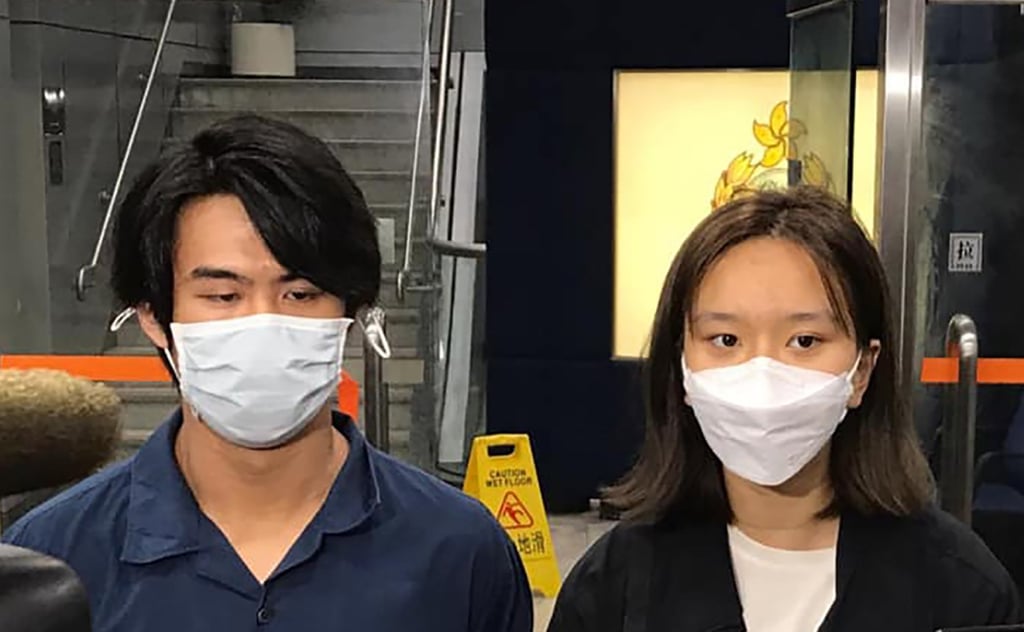Student activists facing subversion charges in Hong Kong plead for leniency, saying they are remorseful and voluntarily ceased acts
- Student Politicism’s leaders appear in District Court for mitigation in their case involving charge of conspiracy to incite subversion
- Convenor’s counsel highlights client’s letter to court apologising for expressing his love for the city in the wrong way

Four student activists awaiting sentencing for advocating Hong Kong’s independence and a “struggle” against authorities have pleaded for leniency on the grounds they are remorseful and voluntarily ceased all acts endangering national security.
The quartet from the now-defunct Student Politicism appeared in the District Court for mitigation on Saturday as the defence argued the case, involving a charge of conspiracy to incite subversion, was less serious than similar offences and warranted lighter penalties.
The group’s convenor Wong Yat-chin and secretary Chan Chi-sum, both 21, along with spokeswomen Jessica Chu Wai-ying, 19, and Alice Wong Yuen-lam, 20, admitted in July to making numerous offensive statements at seven street booths between October 2020 and June last year.

The court heard in an earlier session that a common theme of their speeches was to “invite” the audience to join the “struggle” against those in power with a view to establishing an independent state, while others targeted the government’s adoption of the “Leave Home Safe” risk-exposure app to contain the Covid-19 pandemic.
Edward Chan Tak-cheong, representing convenor Wong, said on Saturday his client’s intention was to focus attention on current affairs. Even though his stance might be wrong, he was not “opposing for the sake of opposing”, Chan said.
The lawyer cited Wong’s letter to the court dated August 30, in which the defendant said he was sorry for expressing his love for the city in the wrong way and causing enormous public resources to be spent on his case.
But prosecutors took issue with a public statement posted on Wong’s social media accounts, in which he purportedly urged his supporters to remain adamant and maintained he felt no regret for his actions.